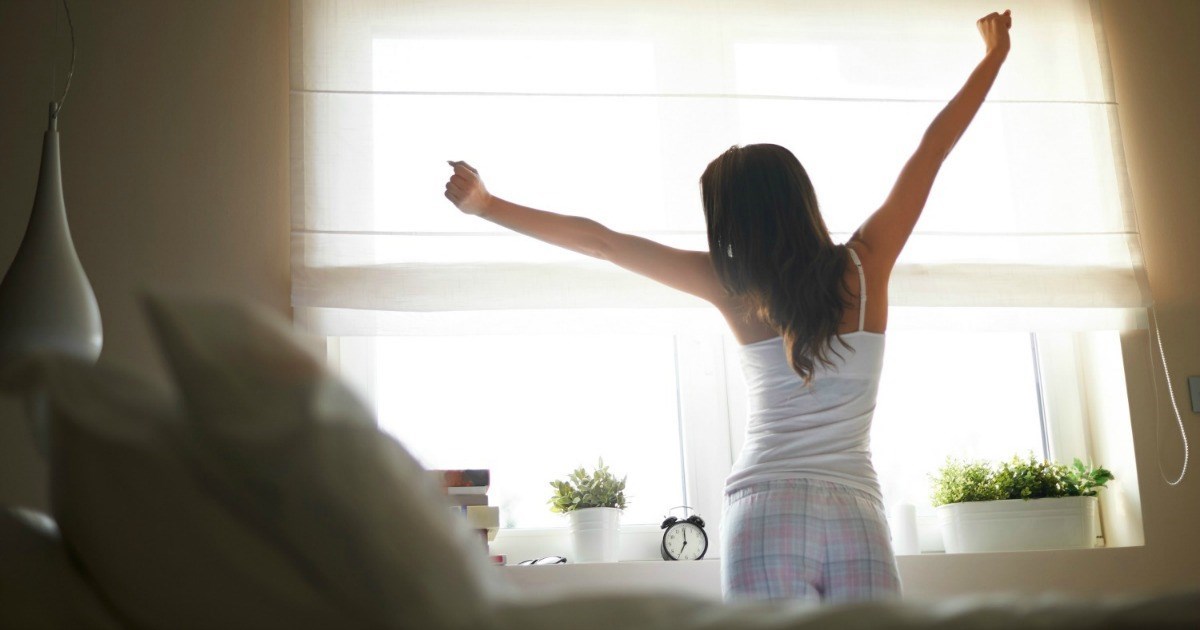Early Bird Or Night Owl: Which Is Better For Your Health?
Whether you leap out of bed at daybreak or find yourself snoozing until noon, your bedtime strongly correlates to how well you function in your daily life. As a part of our biological design, we are assigned to certain distinct traits dependent upon our sleeping pattern. We have been conditioned to think of early birds as the overachievers and highly functional beings, while the night owls are often thought of as lazy and maybe even a bit less reliable. While many of us have the thought form that one sleeping cycle is superior to the other, they both have many advantages as well as disadvantages working on their sides. So as for the age-old question, which lifestyle is healthier? Let's find out now.
Night Owls Are More Productive

Those who have trouble making it out of bed during the wee hours of the morning have gotten a bad rep for being lazy. However, a study conducted by a group of researchers attending the University of Liege in Belgium found nocturnal individuals (night owls) not only achieve more than their counterparts, but they also remain mentally alert and focused for a much longer period after being awakened. So in short, night owls are more productive. As the day grows older and eventually shifts to nighttime, many individuals have either fallen asleep or are preparing to do so. Night owls often take advantage of this quiet time to work diligently and free of disruptions. Another study published in the California Journal of Science Education documents night owls experience a natural energy peak in the evening time that urges them to be productive while others are whining down.
keep reading to learn about the next factor in this debate.
Night Owls Are More Intelligent

Not only will night wanderers get more done during their waking hours, but they are also known to have higher IQs than individuals who wake up early. A study conducted at the University of Madrid found night owls not only earned higher salaries, but they also displayed higher levels of intelligence compared to early risers. There have been numerous studies concluding with similar results seemingly proving night owls are more intelligent. Furthermore, night owls are more likely to have creative personalities, which are likely attributed to them having trouble falling asleep at night. While trying to project into a motionless slumber, the night owl often finds himself in deep thought accessing every aspect of the world around them before finally dozing off. This allows the night dweller extra time for contemplation without much interference leading to more strategic thoughts and creative ideas.
Learn more about whether being a night owl or early bird is better for health now.
Early Birds Are More Proactive

As we all know, the early bird gets the worm, so of course, early birds are more proactive. Naturally, individuals who wake up at the crack of dawn are more proactive according to a study conducted at Harvard University. Early birds have the personality trait that urges them to make the most out of the day while their counterparts are still asleep. They have the mindset that encourages them to achieve as many tasks as possible as they are awarded most of the daylight. Statistically, individuals who thrive in the mornings tend to have more positive attitudes as well as optimal discipline leading them to effortlessly tackle the essential tasks of life such as getting in a morning exercise, eating a well-balanced breakfast, and planning for the day ahead.
Get to know the next factor in the early bird versus night owl health debate now.
Early Birds Are Healthier Overall

For numerous reasons, early birds are healthier overall. They are less likely to become ill or suffer from depression or eating disorders, which is largely due to the fact early birds begin their eating schedules earlier in the day allowing enough time for the digestion process to take place before bedtime. They are also less likely to snack or eat meals at night, as they are already preparing for bed by this time, leading to fewer cases of obesity. In conjunction with healthier eating habits, the early bird often adopts an exercise schedule that usually takes place shortly after they have awakened. Moreover, the balance between the sleep and wake cycles are more in sync than individuals who wake up later. Because the morning person usually never struggles to get to sleep, they can achieve more restful nights reviving and energizing them for the next day.
Get ready for more on this debate now.
Comparing Pros and Cons

Comparing the pros and cons of early birds and night owls may help you decide which of the two is the healthier group for you. As productive, clever, and innovative as night-dwellers tend to be, they also battle with depression and anxiety more. This could be attributed to their higher rates of sleep deprivation prohibiting their bodies from getting an adequate amount of rest. The early bird, on the other hand, tends to be more positive, robust, and ready to take on the world, yet they also burn out much quicker and tend to lead compulsive lifestyles. The truth is, there may not be a technical answer as to which group is healthier. As with all other things, both early birds and night owls come with both good and not so great characteristics.